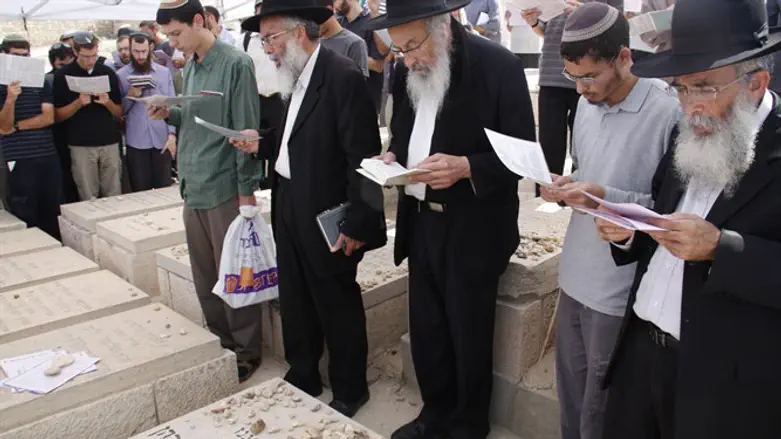
The Prayer of Chanina ben Dosa
The first-century sage Rabbi Yochanan ben Zakkai was deeply troubled. His son was seriously ill. When the child’s condition became life-threatening, the rabbi turned to one of his students, known for his piety and ability to perform miracles: Chanina ben Dosa.
“Chanina, pray for my son so that he may live!”
Chanina ben Dosa promptly placed his head between his knees and prayed for God’s mercy. And the boy recovered.
Rabbi Yochanan ben Zakkai remarked to his wife: “If I were to place my head between my knees all day long, it would not have made a difference.”
The rabbi’s wife was surprised. “What? Is Chanina greater than you?”
“No,” replied Rabbi Yochanan. “But he is like a servant before the King, while I am a minister before the King.” (Berachot 34b)

What is the difference between the king’s servant and his minister?
And why was Chanina ben Dosa’s prayer more efficacious than the prayer of an eminent scholar like Rabbi Yochanan ben Zakkai?
Service of the Mind and Service of the Heart
In general, we have two paths to serve God. The first path is to use our intellectual faculties to contemplate and follow the ways of God.
The second path relies on the heart. It is based on our innate disposition towards kindness and holiness.
Both are valid ways to serve God, whether we are guided by the intellect’s truth, or by our innate sense of goodness and purity.
Those whose path is an intellectual service must concentrate their efforts on studying and internalizing true knowledge of God’s ways.
Prayer, on the other hand, primarily engages the emotions and contributes less to the path of intellectual spiritual growth.
But for those who choose the path of the heart, prayer is key in refining and uplifting their service. Their prayers are more likely to be accepted, as Divine providence assists and completes us in the path that we have chosen. As the Sages taught in Makkot 10b, “According to the path that one wishes to follow, one will be directed.”
The service of the mind is loftier than that of the heart, just as the intellect is a higher faculty, above the emotions. Nonetheless, prayer will be more effective for those who have chosen the path of feelings of holiness. Those who seek to elevate their spirits through an outpouring of prayer will experience a natural sense of closeness to God.
The Servant and the Minister
Now we may understand Rabbi Yochanan’s response to his wife. His student Chanina ben Dosa was like a servant before the King. Chanina’s service was based on holy and pure emotions. He performed God’s will like a faithful servant, without questioning or deeper understanding. And his sincere prayers, straight from the heart, suited his spiritual service.
Rabbi Yochanan ben Zakkai, on the other hand, was a great scholar. He was like a minister to the King. His service was a lofty path, the service of Torah wisdom and scholarship. For one accustomed to this higher service, the emotional service of prayer is a descent; it is less central for this spiritual path.
Perhaps that is the significance of the Talmud’s description of Chanina ben Dosa’s prayer: “he lowered his head between his knees.” This position indicates a service of God in which the intellect takes a backseat. The head is lowered, while the heart and its emotions take center stage.
(Adapted from preface to Olat Re’iyah vol. I p. 27; Ein Eyah vol. I p. 166, sent to Arutz Sheva by Rabbi Chanan Morrison, ravkooktorah.org)




